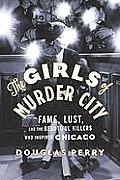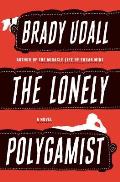
Do you mind if I complain today?
I recently read — and loved — Brady Udall's The Lonely Polygamist, and so a friend told me that I had to read Udall's first novel, The Miracle Life of Edgar Mint. She said it was fantastic, unforgettable. And so I went in search of it — and came upon, right here on the Powell's site, the following quote from Mr. Udall about the process of writing the book:
For a while, I was happy to live under the illusion that I was indeed the god of my own little universe. Then, very early on in the course of writing the book, something funny happened: Edgar started to go his own way. He began to defy me.
Boy, I really hate this particular authorial flimflam. What Udall is describing is automatic writing, and it never, ever has resulted in a readable novel or poem or even shopping list. Udall, of course, doesn't for a minute believe what he's saying. Imagine Steven Spielberg offering up something similar:
For a while, I was happy to live under the illusion that I was indeed the god of my own little universe. Then, very early on in the course of making Saving Private Ryan, something funny happened: Tom Hanks started to defy me. He made up lines, started to do weird accents, wandered out of the frame.
 It would make a great blooper reel if true, but the very idea of it is ridiculous. Someone has to be in charge of any creative undertaking if it has any chance of being fit for public consumption. For a movie, it's the director. For the novelist, it's... the novelist.
It would make a great blooper reel if true, but the very idea of it is ridiculous. Someone has to be in charge of any creative undertaking if it has any chance of being fit for public consumption. For a movie, it's the director. For the novelist, it's... the novelist.
I don't mean to pick on Udall specifically. The guy's a terrific writer, and I am looking forward to reading The Miracle Life of Edgar Mint. But the "my characters take on lives of their own" trope is so common in author publicity interviews that it gets under my skin. And Udall seems to love this crutch more than most. He used it again when talking about the characters in The Lonely Polygamist:
It's like having children. You have these expectations and hopes for them. You're sure it's going to go a certain way, and, of course, it never does. It never goes the way you want or hope. That's what happens when characters become full and realized. At some point, they can't do the things that you want them to.
I just pictured Atticus Finch refusing all entreaties to take the Tom Robinson case. Then where would Harper Lee be?
I'm being unnecessarily grumpy, I know. Insisting your characters have minds of their own is just an overused way for a novelist to engage a potential reader, to get him to accept the characters as people who are every bit as real as the neighbors, coworkers, and family members he sees every day. The thing is, Brady Udall is so talented he doesn't have to worry about that.